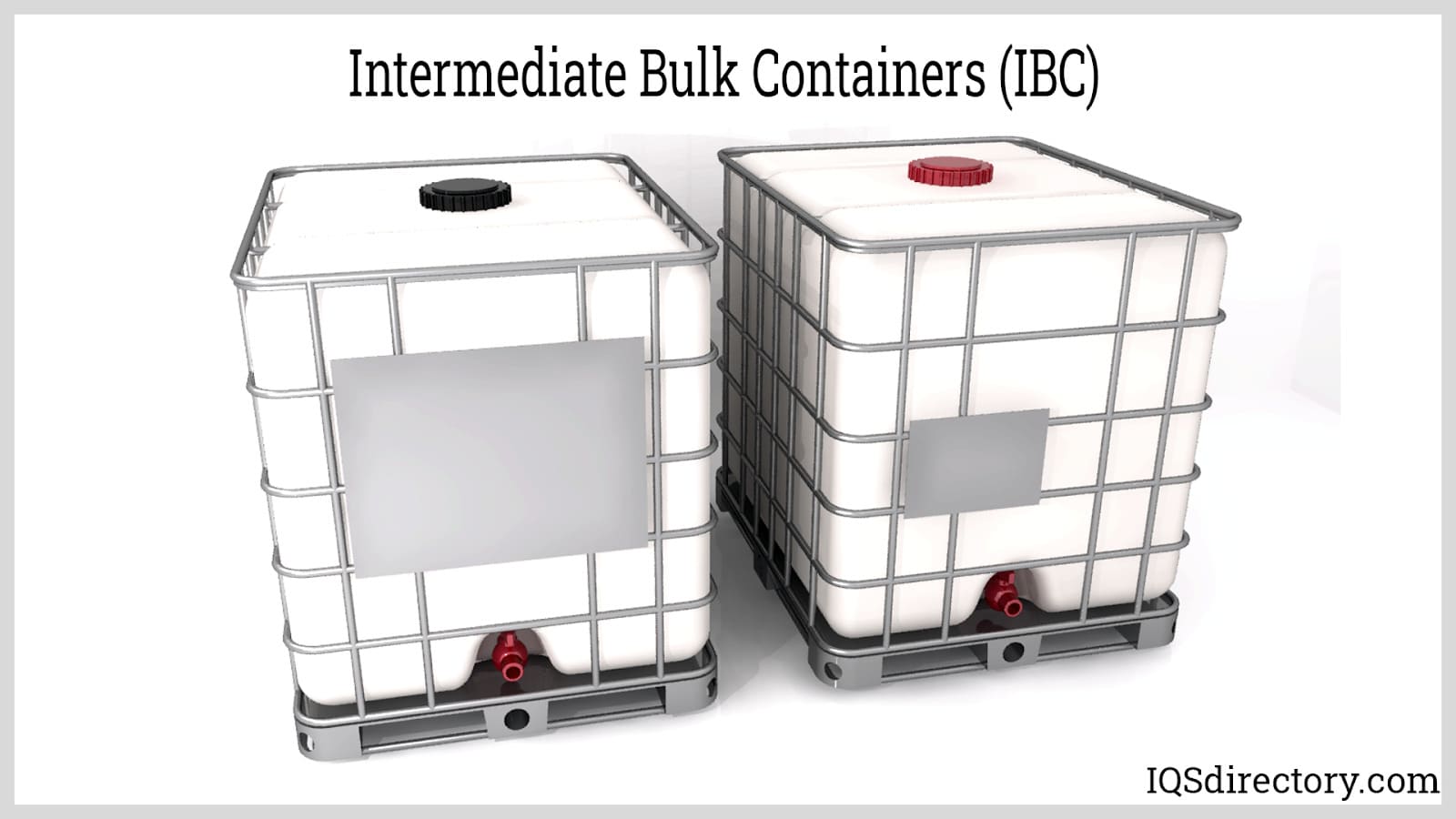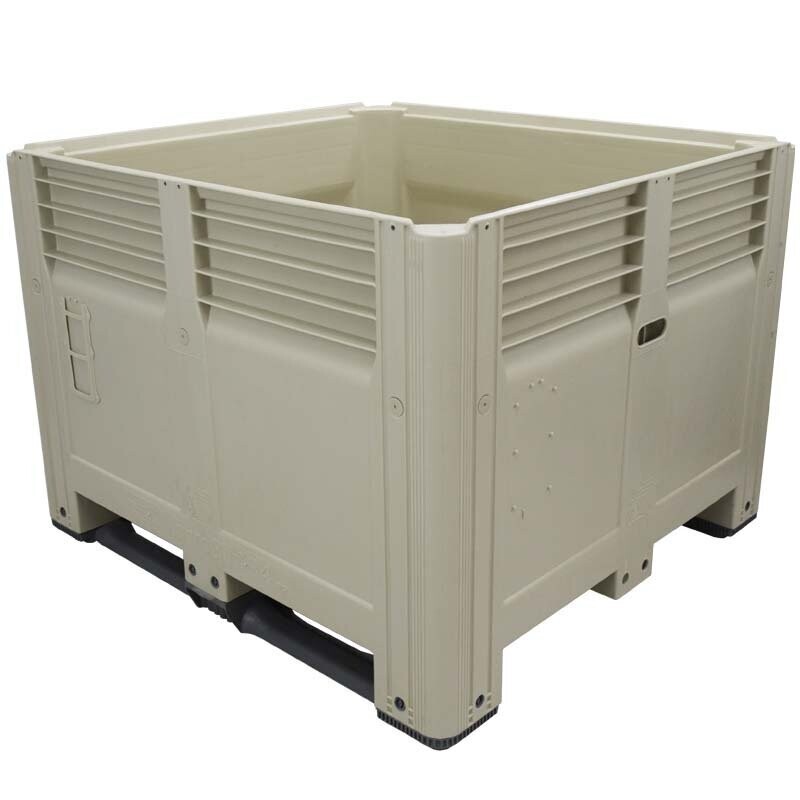Understanding Leasing Arrangements for Mass Plastic Containers: What You Need to Know
Leasing mass plastic containers can be a critical choice for companies seeking to handle prices and performance. Nonetheless, steering through the intricacies of leasing arrangements calls for mindful consideration. Secret factors such as lease period, repayment structures, and maintenance duties must be extensively evaluated. In addition, potential concealed costs and the lessor's credibility play important functions in developing trustworthy partnerships. Recognizing these aspects is vital for making notified decisions in an ever-evolving market landscape. What elements should one prioritize to ensure an effective leasing setup?
The Advantages of Leasing Bulk Plastic Containers
Leasing bulk plastic containers provides a practical service for companies seeking efficiency and cost-effectiveness. This approach permits business to gain access to high-quality containers without the substantial in advance investment commonly connected with purchasing. By renting, organizations can allocate funds better, concentrating on core procedures instead of heavy capital investment. Furthermore, leasing setups frequently consist of maintenance and assistance solutions, making certain that containers stay in peak condition and lowering the worry on interior sources.
Additionally, leasing gives flexibility, enabling firms to change their container inventory according to fluctuating need (plastic bulk containers). This adaptability can cause boosted stock monitoring and minimized waste. Leasing can help with access to the latest container technologies, helping organizations stay affordable in a rapidly changing market. Eventually, the advantages of renting bulk plastic containers can boost operational efficiency, improve capital, and support sustainable techniques, making it an eye-catching alternative for different sectors

Key Factors To Consider When Choosing a Leasing Contract
What aspects should companies take into consideration when selecting a leasing contract for bulk plastic containers? Initially, firms need to assess their particular needs, consisting of the type and quantity of containers needed, to ensure the arrangement aligns with operational needs. Next off, the lease period is crucial; organizations need to determine if a lasting or temporary lease ideal fits their stock turn over and usage patterns.
Price is an additional significant consideration; businesses should assess the total cost of leasing, including any surprise charges or fees. Additionally, they must assess the provider's track record and dependability, as a credible partner can affect the overall leasing experience.

Flexibility also plays an essential duty; companies might take advantage of agreements that allow for changes in container quantities based on changing needs. Ultimately, assessing upkeep and assistance choices given by the renting business is necessary to guarantee operational continuity and lessen interruptions.
Recognizing Leasing Conditions
A comprehensive understanding of renting conditions is vital for organizations to browse the complexities of leasing mass plastic containers successfully. Leasing agreements normally consist of crucial elements such as lease duration, payment frameworks, maintenance responsibilities, and discontinuation clauses. Organizations ought to very carefully assess the lease duration to ensure it straightens with their functional demands, whether long-lasting or short-term. Payment frameworks might vary, consisting of regular monthly or quarterly settlements, and comprehending these can considerably impact capital. Upkeep duties need to be plainly defined, as they determine who is responsible for repair work and maintenance throughout the lease period. Furthermore, discontinuation clauses can state conditions under which the lease can be ended too soon, which is crucial for businesses expecting potential adjustments popular. By thoroughly evaluating these terms, services can make enlightened choices that straighten with their tactical objectives and operational needs.

Common Pitfalls to Avoid in Leasing Program
While maneuvering leasing setups for bulk plastic containers, companies frequently experience common challenges that can cause costly blunders - Bulk Plastic Containers. One major concern is falling short to thoroughly understand the lease terms, which can cause unforeseen fees or obligations. Furthermore, ignoring the value of appropriate container maintenance may cause expensive repair services or fines site web for damages. One more constant mistake is not evaluating the complete cost of the lease, including covert costs such as insurance or transport
Organizations may also neglect to evaluate the lessor's reputation, running the risk of partnership with an unstable provider. Not considering the adaptability of try here lease terms can prevent operational versatility. Ultimately, insufficient documents of the leasing arrangement can create conflicts, bring about legal or financial complications. By acknowledging these pitfalls, companies can much better prepare themselves to navigate renting plans a lot more successfully and prevent damaging repercussions.
Tips for Bargaining the Finest Lease Terms
How can businesses protect one of the most favorable lease terms for bulk plastic containers? First, they must carry out complete marketing research to comprehend prevailing terms and prices. This knowledge empowers them to discuss with confidence and determine competitive deals. Next, services can take advantage of their buying quantity to discuss better costs, emphasizing long-term arrangements that may benefit both events.
Additionally, they should meticulously examine lease arrangements, paying close interest to conditions pertaining to maintenance, insurance policy, and charges for early discontinuation. Involving legal advise for a detailed review can avoid pricey misconceptions.
Finally, companies must stay adaptable and open to talking about alternative terms, such as prolonged lease periods for minimized regular monthly prices. By coming close to arrangements with prep work and a desire to jeopardize, organizations can safeguard lease terms that straighten with their functional demands while reducing prices.
Frequently Asked Questions
Just how Do I Determine the Right Amount of Containers to Lease?
To identify the right quantity of containers to rent, one must examine existing supply needs, forecast need changes, think about preparations, and make up storage space restrictions, making certain an ideal balance in between supply and functional performance. Bulk Plastic Containers.
Can I Tailor the Containers to Meet My Particular Requirements?
Yes, customization of containers to meet certain needs is commonly possible. Numerous leasing business click for source offer choices for modifications, allowing customers to tailor dimensions, shades, and functions, making sure the containers align with functional requirements and preferences.
What Takes place if I Required to Return the Containers Early?
If containers are returned early, the leasing arrangement may specify charges or costs. The company could assess the problem and use, possibly changing costs based upon the staying lease term and pre-established terms.
Are There Any Maintenance Duties for Leased Containers?
Leased containers generally need the lessee to maintain them in good problem, addressing minor deterioration. Significant repair work typically drop under the owner's obligations, yet specifics can differ based on the leasing arrangement.
Just how Is the Leasing Rate Structured Over the Agreement Period?
Leasing rates are generally structured based upon the duration of the agreement, regularity of payments, and container requirements. Additional variables, such as upkeep and insurance policy costs, may likewise affect the overall rates arrangement with time.
